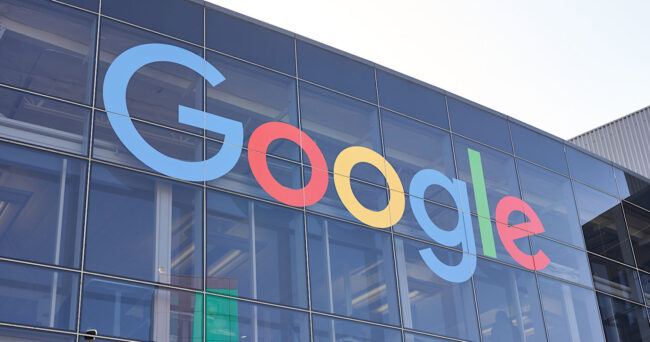Google’s Danny Sullivan confirmed that the tech giant was rolling out a core search algorithm update. The latest update, which came to be known as the “May 2024 Core Update,” was rolled out on 4th May 2024.
Here is what he had to a say via Twitter:

“Later today, we are releasing a broad core algorithm update, as we do several times per year. It is called the May 2024 Core Update. Our guidance about such updates remains as we have covered before. For more information, please visit our official page for the blog post.”
As always, Google is ever a step ahead of the entire SEO community regarding feature updates in core ranking algorithms. Google does this sort of thing several times per year to improve the way it offers search results. By doing so, some sites can drop in rankings, whereas others greatly benefit from this by ranking higher. And it is all based on merit. Read more about Google Algorithm updates on Utopia.
What is a broad search engine algorithm?
This refers to a collection of rules that guides the evaluation of web pages or entire websites relative to other similar web pages and sites. The purpose of a search algorithm is to filter the content and relevance of all websites and rank the content in relation to the user’s request (queries). For this reason, you cannot be solely top-ranked for multiple keywords.
Google further added the following statement on Twitter:

“Each day, Google usually releases one or more changes designed to improve our results. Some are focused on specific improvements, while some are broad changes. Last week, we released a broad core algorithm update. We do these routinely several times per year.”
As Sullivan rightly put it in his announcement, the rules guiding the core search ranking update remain the same as it always has been. However, that did not stop the SEO community from anxiety and panic mode regarding these changes. (We shall focus more on this later).
Background on core search updates
Historically, website owners and SEO webmasters assume the worst-case scenarios when search updates come out. But let’s face it: core updates are opportunities google uses to display its results better and more specifically. Besides, it’s an opportunity to reward diligent site owners for their optimization efforts over a period of time.
Those who go into panic mode are those whose sites are impacted negatively by the core search ranking updates. But Google continually evaluates how its search results should be displayed.
However, site owners and SEO webmasters who diligently keep their sites optimized will see a reversal of fortunes for their input. On the contrary, sites that have not made an effort to optimize content will see a drop in rankings.
The purpose of Google’s Core updates

Broad core search updates are designed to produce noticeable changes in search rankings globally. Some sites are often rewarded, while others drop in their search rankings every time core updates are released.
But how does Google rank websites?
Google search ranking algorithms
Google uses numerous different factors to rank websites. Websites that rank top for any search result are considered relevant to users’ query requests. The factors are quite complex, but in doing so, Google uses hundreds of intricate inter-connected factors in its ranking algorithms to determine which websites relate to particular search keywords from users.
No one knows for sure the specifics of these factors. Nevertheless, with research and good SEO dynamics, site owners and SEO webmasters have insight into what those factors might be. It is agreeable across the board that the factors that matter most in search rankings include:
- The site structure and design.
- The efficiency of keyword usage.
- The ease of access by mobile phones.
- Quality of inbound links.
- The number of outbound and backlinks.
- The speed of the website.
- The average time spent on the website.
Furthermore, Google uses the following factors in its core search ranking algorithm:
- Google’s special algorithmic rules.
- Backlinks.
- User interfaces.
- On-site Web spam.
- Off-site Web spam.
Google’s search algorithms and how it works

Google’s search algorithm is one of the single most important tool used in showing search results. Without it, it is virtually impossible to sort out relevant search results for keywords from billions of results online. As much as no one can’t tell what aspects the algorithm considers more, it is possible to decipher what matters in the Google Search Console’s crawling and indexing of web pages. Some of the factors involved in Google’s search algorithms include but are not limited to:
- Content quality of your web pages
Offering great content on your website isn’t always easy, but it is a major factor in core search ranking. Content quality encompasses many factors, but the bottom line is that your content should be precise, SEO optimized, detailed, and with target keywords. Moreover, Google looks at the relevance and the layout of your content on the website in its search results. Other factors that determine the quality of your content include links and page rank.
- Queries requests by users
First and foremost, Google initiates a process that analyzes the specific search query or keyword. Whether it is a single word or multiple, the search engine strives to analyze and interpret the query by means of the search algorithm. Besides, it has a synonyms system that it uses to match queries to match relevant results.
If the search query happens to be on your web page, you are lucky because your website will first be shown on the results page. However, bear in mind that it is not the only factor in play through the algorithm.
The bottom line
Google is always a step ahead of the SEO community regarding feature updates in its core ranking algorithms. Google does this sort of thing several times per year to improve the way it offers search results. By doing so, some sites can drop in rankings, whereas others greatly benefit from this by ranking higher. And it is all based on merit.
Google’s core search results algorithm uses over 200 factors to rank web pages in search results. The search engine algorithm uses factors that range from the quality of content, type of queries, and your web pages’ relevance in crawling and indexing your web content.
